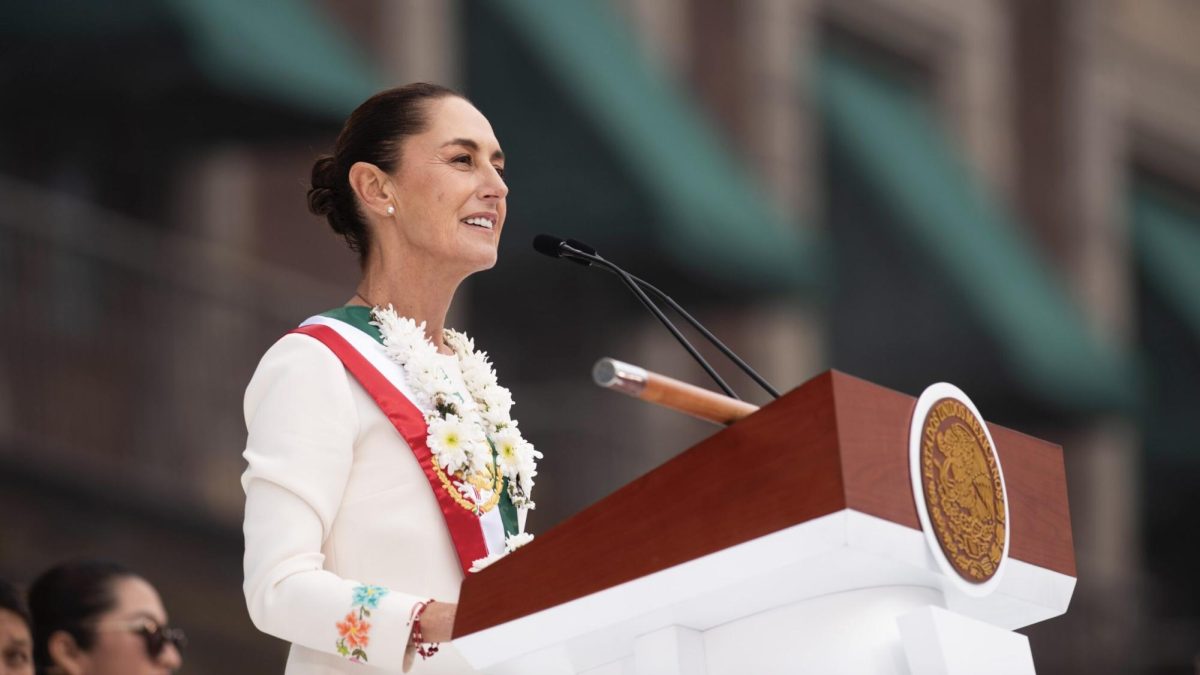Claudia Sheinbaum, the first female president of Mexico, promises to clear Mexico’s streets of gang violence with her astounding plan, devoting herself to the already-in-place “hugs, not bullets” advance.
In 2023, the homicide rate in Mexico was four times higher than in the U.S. until Sheinbaum came into the picture. Homicides have become a growing issue with gangs becoming more comfortable with having a public presence. According to studies, more than half of the homicides were committed in public venues. As the issue continues to rise, the people of Mexico plead for comprehensive prevention strategies to establish a safer and secure community through multiple rallies and protests.
Statistics show that Andrés Manuel López Obrador, the former president of Mexico, had one of the bloodiest terms. With the most counted deaths, roughly 156,136 people were murdered and 96% of all crimes went unreported or unsolved during López Obrador’s time. Sheinbaum promises a more systematic approach to the causes of violence rather than the large amount of militarization that López Obrador established.
The skyrocketing cartel war deaths have brought anxiety to the residents of Mexico. Violence is mainly prevalent along “turf boundaries” between multiple corrupt organizations. After serving as the mayor of Mexico City, Sheinbaum proved her ability to split the homicide rate due to gang violence in half. Her plan strategically targets crisis zones and alleviates the conflict. Promising an enhanced national intelligence agency, Sheinbaum sees a bright future for Mexico.
Sheinbaum’s social strategy is mainly aimed at stopping the recruitment of young Mexicans by drug gangs and supporting the public in areas hit especially hard by violent crime. Sheinbaum’s top security official, Omar García Harfuch said Sheinbaum’s plan “continues with the strategy begun in the administration of President Andrés Manuel López Obrador, to give priority attention to the poorest families” which can hopefully decrease homicide rates.
Although Mexico already spends over $10 million annually to fight organized crime, a survey from the national statistics agency shows 60.7% of Mexico’s population still feels afraid to step outside. Sheinbaum’s plan also includes close collaboration with U.S. security forces. An alliance like this calls for trust on both sides which is currently ambiguous due to López Obrador pausing relations with the U.S embassy in August.
In hopes of mending the relationship, Sheinbaum plans to approach the U.S with the fentanyl overdose crisis in mind. Every year, over 100,000 Americans fatally overdose on fentanyl smuggled from the U.S.-Mexico border. The U.S and Mexico working together could terminate the two powerful cartels supplying it through the border. Incarcerating and putting an end to these cartels can significantly decrease the homicide rate.
During her time as mayor of Mexico City, she implemented more intelligence-gathering powers as well as adding more surveillance in hot spots around the area. Statistics show that ever since Sheinbaum’s appointment, homicides, robberies, and assault rates have seriously declined. Because of this, inhabitants claimed feeling safer now than in 2019.
Overall, Sheinbaum’s election as the first female president of Mexico marks a historic event for the crime-ridden country, but cannot overshadow the significant promises she has made to combat violence, prevent the cartel recruitment of young Mexicans, and re-establish connections with the U.S.



